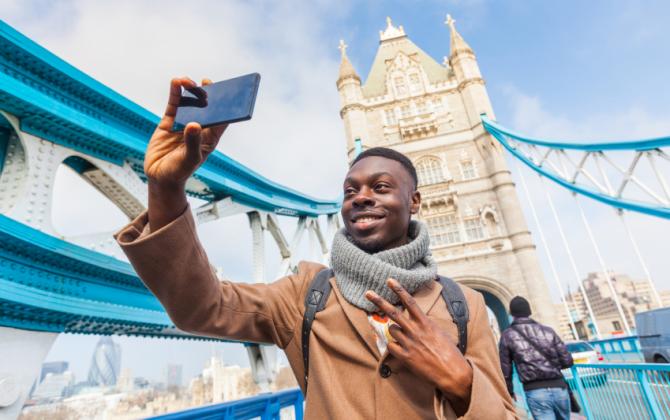[ad_1]

The moment Charles Hunt arrived in Rome, he planned to drop his luggage at his Airbnb and go on to explore the ancient city. Except, after a series of six email exchanges with the host to finalize accommodations and pay for his stay, the host suddenly said the room was no longer available. Out of time and almost out of cellphone-battery life, he quickly came across a small hotel and stayed there for the remainder of his trip.
As black travelers proliferate and continue to add their hard-earned cash to the multitrillion-dollar travel industry to the tune of $48 billion, according to Mandala Research, those looking to avoid last-minute cancellations with Airbnb hosts might have to work harder to put their hosts at ease or seek an alternative altogether.
Hunt, who runs a consulting firm in Charlotte, N.C., and is a frequent international traveler, hasn’t successfully booked through Airbnb since his experience, which isn’t surprising given recent news about discrimination in the new shared economy. A recent Harvard study (pdf) revealed that requests from potential Airbnb guests with names perceived to be African American were 16 percent less likely to be accepted by an Airbnb host than identical guests with names perceived to be white.
A few weeks ago, black travelers took to Twitter to share their dissent regarding flaky hosts and difficulties booking rooms under the hashtag #AirbnbWhileBlack. One Twitter user reportedly attempted to book with his current profile photo and was unsuccessful. When he changed his profile to that with a picture of a white male, his request was accepted.
Evita Robinson, creator of the popular and global black travel group Nomadness Travel Tribe, which boasts a Facebook group of over 13,000 urban travel enthusiasts, says that more members are bringing up the controversy with Airbnb, sharing stories about being on the receiving end of discrimination by hosts.
“The dialogue begins from the initial point of contact, when they engage conversation about their stay. A number of people have had hosts go silent in conversations or cancel pending itineraries without explanation,” Robinson shares with The Root. “While it may be an assumption that it’s race-related, it is noticeable to these members and can happen many times over, making them question why.”
These discriminatory practices by potential hosts hurt not only African-American would-be guests but also the hosts themselves, who miss out on $65 to $100 per listing, since they are successful in securing replacement guests only up to 35 percent of the time. Conversely, African-American hosts also bear the brunt of discrimination because guests typically pay less to stay with black hosts.
Amid the findings and public dissent, U.S. Rep. Eric Swalwell (D-Calif.) called out Airbnb to address hosts with a pattern of discrimination “immediately and decisively.”
The legal gray area where the sharing economy resides makes it difficult to challenge practices among hosts and service providers using apps to attract customers. Despite Airbnb’s stated policies, which prohibit discrimination, racism and hatred among its hosts and guests, the obligation to comply remains strictly with individual hosts, making policies difficult to enforce.
Robinson, who frequently hosts group trips, hasn’t personally experienced discrimination through the site. For her part, she mentions that it doesn’t escape her that she looks culturally ambiguous. As a rule of thumb, when booking, she explains what the group is, allowing hosts to conduct research before accepting the request.
For black travelers looking for accommodations outside of Airbnb, there are alternatives. Robinson recommends using HomeAway or directly connecting with friends met in travel groups or leveraging other loose connections for places to stay. Other options include VRBO and Hotel Tonight for last-minute deals.
Robinson still asserts that Airbnb can be successful. “You’ll find that many boutique hotels are now on Airbnb and can be used more so as the first step of communication, rather than a tell-all, end-all,” she says.
[ad_2]





















